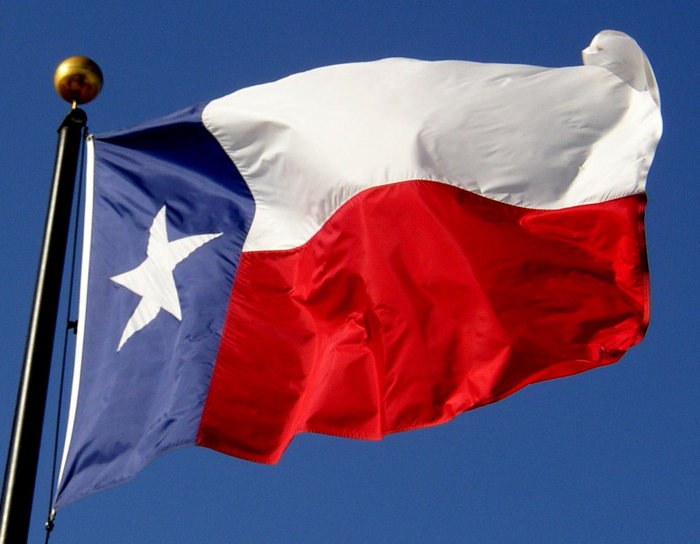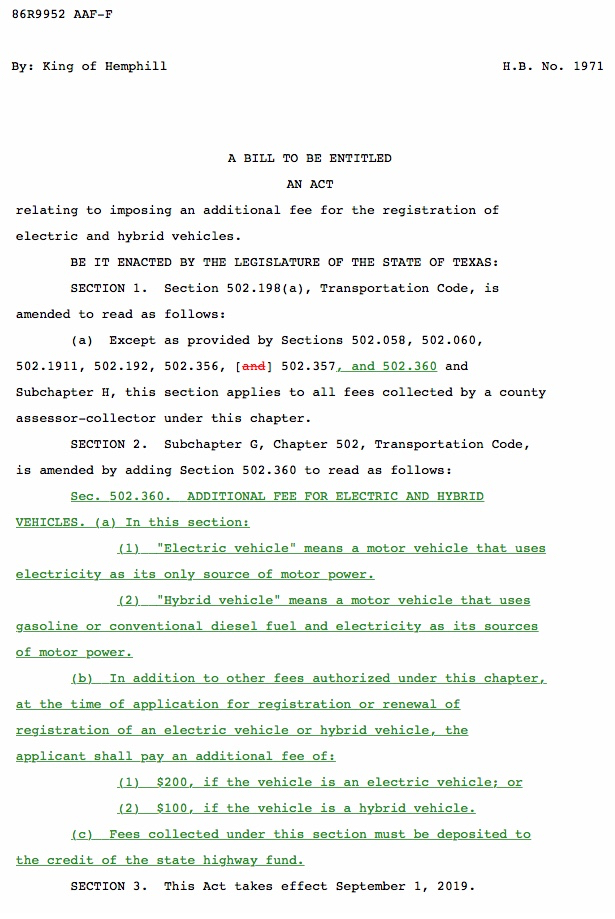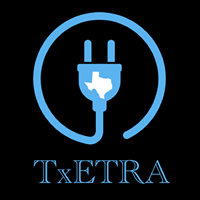 It’s been a long time coming, but way back in 2013, the rumblings began and I raised the red flag. Back then a state representative floated the idea of an extra registration fee for EV owners. This was seen as one way to get revenues back up for the road and bridge tax fund that keeps our roadways safe. An alternative solution was presented in that blog post.
It’s been a long time coming, but way back in 2013, the rumblings began and I raised the red flag. Back then a state representative floated the idea of an extra registration fee for EV owners. This was seen as one way to get revenues back up for the road and bridge tax fund that keeps our roadways safe. An alternative solution was presented in that blog post.
Now, six years later, a Republican state representative, by the name of John King, has filed House Bill HB1971, “Relating to imposing an additional fee for the registration of electric and hybrid vehicles.” Interestingly, this particular representative has also sponsored another bill, (a Republican favorite in other states), “Relating to the drug testing of certain persons seeking benefits under the Temporary Assistance for Needy Families (TANF) program.” In every state where drug testing for public assistance has passed, the cost of the testing far exceeded the savings recouped by the state. In some cases, the officials promoting bills like that, had financial interest in the drug testing company to be employed, so always follow the money…
Anyway, back to HB1971: This is a flawed, shortsighted bill that needs to be stopped. In my opinion, it is a lazy way to address an ongoing problem that will leave all drivers open to new patches (taxes) when tax revenues from gasoline continue to drop. We elect our public servants to do the hard work of solving problems, not just providing a temporary fix.
You can place your public comments here, but PLEASE reach out to your elected officials to let them know your thoughts on this bill.
Here’s an image of the bill, from legiscan.com: One other way to protect your interests as a plug-in vehicle driver, is to join the Texas Electric Transportation Resources Alliance. TxETRA is a non-profit organization, based in the state capitol, that promotes all fors of electric transportation in Texas. Disclosure: I am a board member with TxETRA. Joining TxETRA is free for owners of plug-in vehicles.
One other way to protect your interests as a plug-in vehicle driver, is to join the Texas Electric Transportation Resources Alliance. TxETRA is a non-profit organization, based in the state capitol, that promotes all fors of electric transportation in Texas. Disclosure: I am a board member with TxETRA. Joining TxETRA is free for owners of plug-in vehicles.
A recent TxETRA white paper on EV charging infrastructure has already been submitted to the state, which was formulated by plug-in electric utility experts, vehicle drivers, EV salespeople, charging networks, charger manufacturers and public policy experts. If the suggestions in the white paper are adopted, Texas will have DC fast chargers every 50 miles on the major highways of Texas, instead of just in the major cities, where the EVs reside. This could be accomplished by as early as 2023, using the Volkswagen “Diesel-gate” penalty money.
If you join TxETRA, please make sure you fill out the EV owner survey, so TxETRA knows your opinions the issues that are important to you, as an EV owner.
